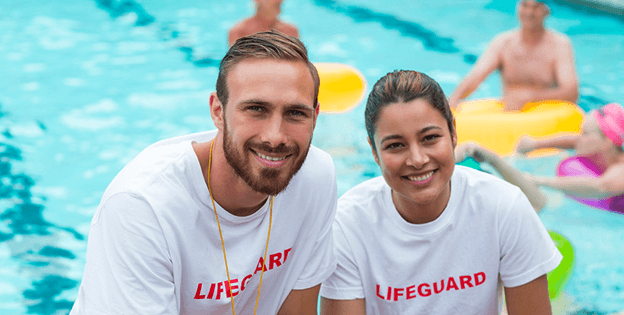Understanding the Role of a Lifeguard
Lifeguarding isn’t just a job—it’s a responsibility that demands vigilance, skill, and quick thinking. Whether you’re a seasoned professional or just stepping into this vital role, honing your abilities is crucial. Here, we’ll explore ten concrete steps to help you enhance your lifeguarding skills and become more proficient in ensuring water safety.
Importance of Lifeguarding Skills
A successful lifeguard embodies various essential traits: vigilance, quick reflexes, physical fitness, and a calm demeanor under pressure. These qualities form the foundation of effective lifeguarding.
Training and Certification
Obtaining proper Lifeguard near me and certification is paramount. Seek accredited courses that cover water rescue techniques, CPR, first aid, and understanding the dynamics of different water environments.
Physical Fitness and Stamina
Maintaining peak physical condition is key. Regular workouts, cardio, and strength training enhance endurance, crucial during demanding rescue situations.


Regular Practice of Rescue Techniques
Consistent practice sharpens skills. Regularly simulate rescue scenarios to reinforce muscle memory and boost response time.
First Aid and CPR Training
Knowledge of first aid and CPR is non-negotiable. Stay updated on protocols and participate in refresher courses regularly.
Knowledge of Water Safety Protocols
Understanding water dynamics, currents, and potential hazards is pivotal. Regularly review safety protocols to adapt to different scenarios.
Communication Skills and Teamwork
Clear communication with team members and patrons is essential. Foster teamwork and effective communication to ensure seamless coordination during emergencies.
Understanding Weather Conditions
Weather can significantly impact water safety. Stay informed and understand how weather changes can affect your lifeguarding duties.
Continuous Education and Training
Learning is a continuous process. Attend workshops, seminars, and stay updated with the latest lifeguarding techniques and protocols.
Developing Situational Awareness
Enhance your ability to assess surroundings. Being aware of changes and potential risks can prevent accidents.
Building Confidence and Calmness
Confidence is contagious in stressful situations. Cultivate calmness and confidence through consistent training and experience.
Review and Self-Evaluation
Regularly evaluate your performance. Reflect on past incidents to learn and improve your response strategies.
Also read: Pre-Workout Nutrition: Top 10 Pre-Workout Foods
These courses cover a range of topics crucial for effective lifeguarding:
Water Rescue Techniques: Teaching methods to assess and perform water rescues safely and efficiently.
CPR and First Aid Training: Providing knowledge and hands-on practice in cardiopulmonary resuscitation (CPR) and administering first aid in water-related emergencies.
Understanding Water Dynamics: Educating about water currents, tides, and potential hazards in different aquatic settings.
Emergency Response Protocols: Learning protocols to handle various emergencies, such as drowning, injuries, or sudden illnesses.
Physical Fitness Requirements: Emphasizing the importance of physical fitness to meet the demands of lifeguarding, including swimming proficiency and endurance.
Communication and Teamwork: Training in effective communication with both patrons and fellow lifeguards, fostering teamwork for swift and coordinated responses during emergencies.
Weather and Environmental Awareness: Understanding how weather conditions and environmental factors can impact water safety and lifeguard duties.
Legal and Ethical Considerations: Educating about legal responsibilities, liabilities, and ethical considerations associated with lifeguarding.
Enhancing Lifeguarding Abilities
Improving lifeguarding skills is a continual journey. By incorporating these ten surefire ways into your practice, you not only enhance your abilities but also contribute significantly to water safety.
How often should lifeguards undergo training?
Lifeguards should participate in refresher courses at least every two years to stay updated on protocols and techniques.
Is physical fitness crucial for a lifeguard?
Absolutely. Physical fitness ensures lifeguards can respond swiftly and effectively during emergencies.
What should one do if caught in a rip current?
Signal for help, conserve energy, and swim parallel to the shore to escape the current.
Can anyone become a lifeguard?
While anyone can train, not everyone may possess the necessary qualities. Essential traits like vigilance and quick reflexes are critical.
How can lifeguards improve their communication skills?
Regular practice and team exercises focused on communication can significantly enhance a lifeguard’s skills.


